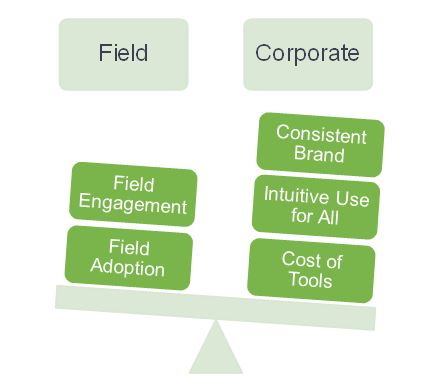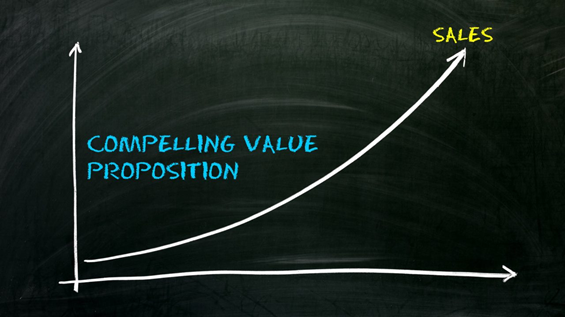Field feedback is invaluable, helping you to adapt to new needs that arise, avoid costly mistakes from taking a path inconsistent with their needs, and help them understand their tools, products and services. Plus, when you listen to your Field, it keeps them happy! Happy Reps attract more customers, sell more product, and attract new recruits.
The challenge comes when trying to balance Rep satisfaction with Corporate strategy. You must weigh Field feedback with your own strategies, in order to achieve success for all involved.
 Below are the most common pieces of feedback I’ve heard from Reps in my 14+ years, which you will likely here at some point in your own path to success. These were gathered in a variety of ways, from a variety of Reps. Whether at an event, on a webinar, over the phone, or in person…this feedback was expressed negatively at least 80% of the time. Understandably, a negative interaction may cause you to not listen or to get defensive. But, in my experience, this negativity is due to frustration and passion. An important skill to learn is how to hear negative feedback, move past the emotional reaction you’ll naturally have, and get to the core need that’s driving that frustration.
Below are the most common pieces of feedback I’ve heard from Reps in my 14+ years, which you will likely here at some point in your own path to success. These were gathered in a variety of ways, from a variety of Reps. Whether at an event, on a webinar, over the phone, or in person…this feedback was expressed negatively at least 80% of the time. Understandably, a negative interaction may cause you to not listen or to get defensive. But, in my experience, this negativity is due to frustration and passion. An important skill to learn is how to hear negative feedback, move past the emotional reaction you’ll naturally have, and get to the core need that’s driving that frustration.
WHEN IT COMES TO SELLING…
1. Don’t dilute our brand!
Obviously I’m paraphrasing here. I don’t think anyone has actually used these words when providing this feedback to me, but the sentiment has been expressed to me in a few different ways.
“I get so frustrated when the products are ALWAYS on sale!”
“I hate the images, they look so CHEAP!”
“I can’t believe they use that word to describe our product, I would NEVER use that word!”
Ultimately – your field can more successfully sell your products when the value is at its highest.
 A few tips to maintain a high value proposition:
A few tips to maintain a high value proposition:
-
- Maintain pricing (“If it’s always on sale, I can’t sell it at full price.”) – this doesn’t mean that you can’t or shouldn’t discount or run promotions. But when you do, do so with intent and specific objectives (liquidation, competitiveness during seasonal shopping, etc)
- Use consistent product images and descriptions – this is a low/no cost way of driving value up and maintaining it at that higher level.Pay particularly close attention to how your products look when viewed on your e-commerce site.
- Use a pre-determined and approved vocabulary when speaking about your products. For example: silver vs sterling silver, hemp vs CBD, and cosmetics vs make-up.
2. Protect our customers – because without them we don’t have a business!
This particular one is two-fold. Reps need to know that they will always have ENOUGH customers to sell their products to, and that their efforts in gaining customers will not be forfeited by losing existing customers.
-
- Protect their status as a Customer – Don’t make it too easy or too lucrative to migrate up!
- Protect them as MY Customer – Communicate on my behalf or not at all. To accomplish this, you can either include the Rep’s info on all communications sent, or provide the tools for each Rep to send their own communication (OR BOTH!).
REGARDING OUR TOOLS…
3. We will create and use our own tools – even if you offer the very best!
This one is particularly difficult to hear, because as a direct selling company you leverage a sales force of independent contractors, but you are still responsible for what they say about your product, your business, and your brand!
You can reduce Rep-created content and tools by providing approved marketing content (images, promotions, etc), training/onboarding tools, and point-of-sale policies (returns, shipping, etc). Even when you DO provide it all, some Reps will still want to use their own. After all, “We’re entrepreneurs, we can’t help it!”. You need to have a plan in place for handling this, including:
-
- Clear policies around the use of self-created materials, including consequences for violations
- Training/Communication on what they CAN do and what they CAN’T do
- Dedicated resources, or a compliance monitoring tool, for research and correction
4. Just because we aren’t USING your tools, doesn’t mean we don’t NEED your tools!
This one came to me as a big surprise. I am blessed with a very analytical mind, and combined with my personality it has made me very good at what I do. But early in my career, I relied almost entirely on my analytical side. I wanted data to back up every decision I made. Even if I didn’t agree with a decision – if the data indicated it, then so be it! What I learned later on is that you need to make decisions with a blend of data and gut.
Back to this specific feedback. The first time I heard this was shortly after I discontinued a tool due to low usage stats. Top Leaders in the Field reached out to me, upset by this decision. When I pointed out that they hadn’t been using it themselves, they confirmed that this was true. However, they HAD been telling every prospect out there about this particular tool, as it was something younger recruits were excited about. My stats had shown that these Leaders weren’t using the tool personally…but failed to show its use as a recruiting tool.
COMMUNICATING WITH US…
5. It’s ok to tell us no. (No, really, it is!)
The final piece of feedback is something it took me YEARS to understand and believe. When I started out, I said YES to everything! What I learned to do later on, is thank them for the feedback but to set expectations with them too:
I can see how that would be beneficial, let me take that back to the team.
Interesting, thanks for sharing. The immediate hurdles I see are…
You know, I have thought about that, but the concerns I have are…
After shifting my initial reactions to field requests, I’ve actually had Reps thank me for saying no…when I did it the right way. When I helped them to understand WHY the answer was no, and made every decision with the intent f driving their success, they genuinely appreciated my candor and trusted my judgement on all feedback provided.
I had a boss once who used to say: “Would you rather I make you happy or successful?” Now, he said this with cheek, and was able to pull it off…but what he meant was this: The BEST way that you can help your field is to give them the tools and training they need to be successful. THAT’S how you get happy Reps…by being truly committed to their success, and to make all decisions with that commitment in mind.
Here’s how to do it:
-
- Set clear expectations – don’t say yes and then have to go back on your word; don’t set a precedent of saying yes to everything
- Explain WHY the answer is no
- If possible, give them a BETTER solution
Ultimately, your Field represents your brand. They are compensated for growing your reach, selling your products, and recruiting a salesforce. For this reason, it’s important to not allow their feedback to deter you from the Corporate strategies you and your team are committed to.
At the same time, your Field represents your brand. Their tone, attitude and satisfaction will bleed into their promotion of your products and business opportunity. It’s important to have Reps who are happy, aligned with your business goals, and excited to bring others into the organization.
